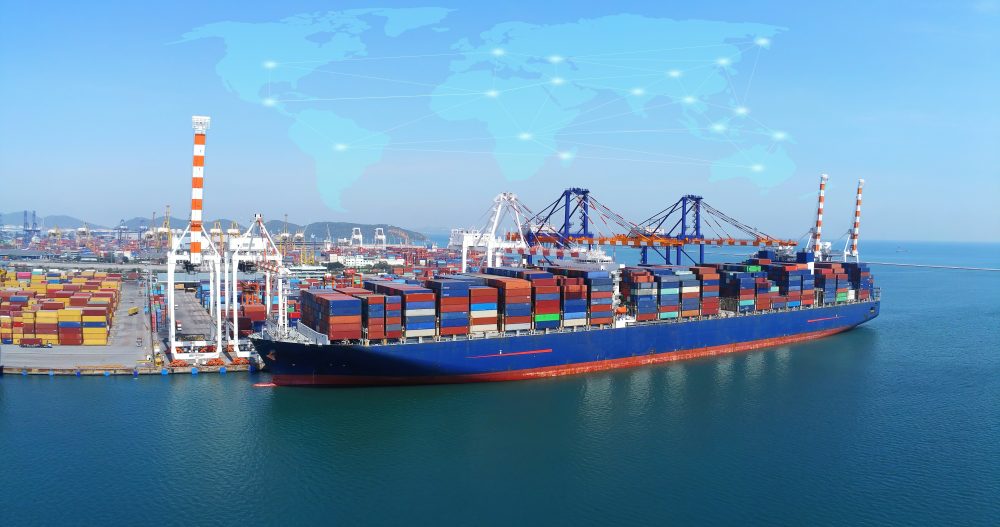In the fast-paced world of logistics, Inc & Co is continuously pushing boundaries to maintain its position at the forefront of the industry. By integrating cutting-edge technologies like artificial intelligence, robotics, and big data, they are revolutionising operations and enhancing efficiency. This proactive approach not only optimises their supply chain but also ensures responsive service that meets the changing demands of consumers.
Inc & Co’s commitment to innovation is evident in their adoption of autonomous transport systems and automated inventory management. These technologies streamline processes and reduce operational costs, offering a competitive edge. Their approach showcases how embracing technology can lead to significant improvements in logistics, driving success and sustainability.
By examining these advancements, readers can gain insights into how Inc & Co navigates challenges and capitalises on new opportunities. The company’s focus on continual innovation is a testament to their leadership in a rapidly evolving industry that demands adaptability and foresight.
Pioneering Strategies in Logistics
In the logistics industry, staying competitive requires adopting cutting-edge strategies. Embracing technologies like AI and machine learning, focusing on sustainability, and utilising lean and agile practices are pivotal.
Leveraging AI and Machine Learning
AI and machine learning are transforming logistics operations, enabling smarter decision-making and improving productivity. By analysing large data sets, these technologies facilitate process optimisation and enhance operational efficiency. For example, AI-driven route optimisation helps reduce delivery times and fuel consumption. Machine learning is also aiding in inventory management by predicting demand patterns more accurately. Additionally, warehouses are seeing increased automation through AI-powered robots, further streamlining supply chain processes.
Embracing Sustainability and Green Logistics
Sustainability is becoming a crucial focus for logistics companies seeking to reduce their carbon footprint. Green logistics initiatives include adopting electric vehicles for transportation to cut emissions. Companies are also investing in eco-friendly packaging to minimise waste. Implementing renewable energy sources like solar panels in warehouses supports sustainable operations. By prioritising green logistics, organisations not only contribute to environmental responsibility but also appeal to customers who value sustainability.
Adopting Lean and Agile Practices
Lean and agile practices are essential for enhancing operational efficiency and responsiveness. Lean logistics strategies revolve around reducing waste and optimising resources, ensuring that operations are cost-effective. Agile methods allow companies to respond rapidly to market shifts and customer demands. By maintaining flexibility, logistics providers can adjust processes swiftly, improving service delivery and competitiveness. This combination of practices results in more efficient supply chain management and process optimisation.
Technological Frontiers in Logistics
Technological advancements are transforming logistics, boosting efficiency and transparency. Key innovations include autonomous vehicles, IoT integration, and blockchain applications, reshaping supply chain processes.
Advancements in Autonomous Vehicles
Autonomous vehicles, including self-driving cars and automated guided vehicles (AGVs), are becoming increasingly significant. They promise improved efficiency in fleet management by allowing for tighter schedules and continuous operation, reducing downtime.
Electric vehicles are also being explored alongside autonomous technologies to enhance sustainability. Companies invest in self-driving technology to minimise human error and improve delivery precision. These vehicles offer real-time data sharing for better route optimisation and can significantly reduce costs associated with labour and fuel.
Internet of Things (IoT) and Cloud Computing
The Internet of Things (IoT) and cloud computing are changing how logistics companies manage data and operations. IoT devices provide real-time tracking and monitoring, improving supply chain visibility. This leads to better inventory control and predictive maintenance, enhancing efficiency and automation.
Cloud computing supports data storage and processing at larger scales, fostering collaboration and communication within and across logistics networks.
Together, IoT and cloud solutions enable predictive analytics, allowing companies to anticipate issues before they arise, making operations smoother and more reliable.
Blockchain for Enhanced Transparency
Blockchain technology offers enhanced transparency and trust in logistics. Its decentralised nature ensures that records of transactions are immutable and transparent. This visibility is crucial for supply chain management, enabling participants to track goods from origin to destination unerringly.
Blockchain also facilitates real-time tracking and verification, reducing fraud and discrepancies. Smart contracts automate and enforce agreements, boosting accountability and efficiency within the supply chain.
By utilising blockchain, companies improve transparency and reliability, fostering trust amongst stakeholders.
Stay connected with Inc & Co on Twitter, Instagram, YouTube and LinkedIn for the latest updates and insights.






Pingback: Leveraging AI for Business Turnarounds: Inside Inc & Co’s Strategy - Business Talk News